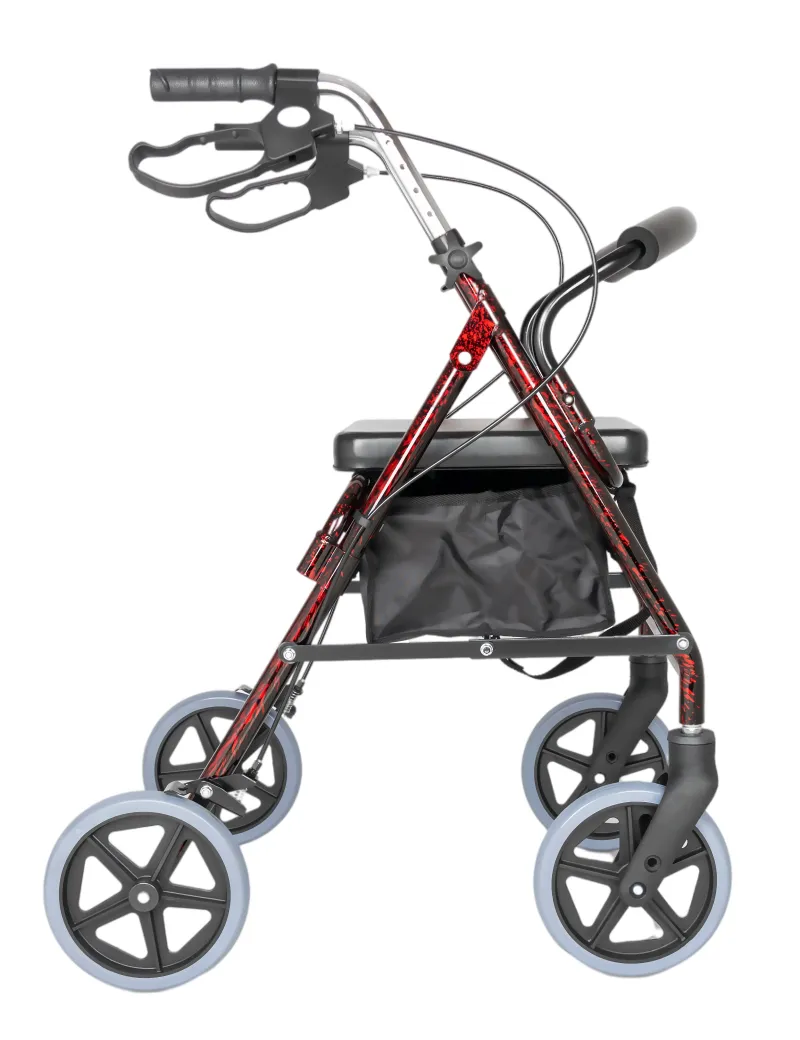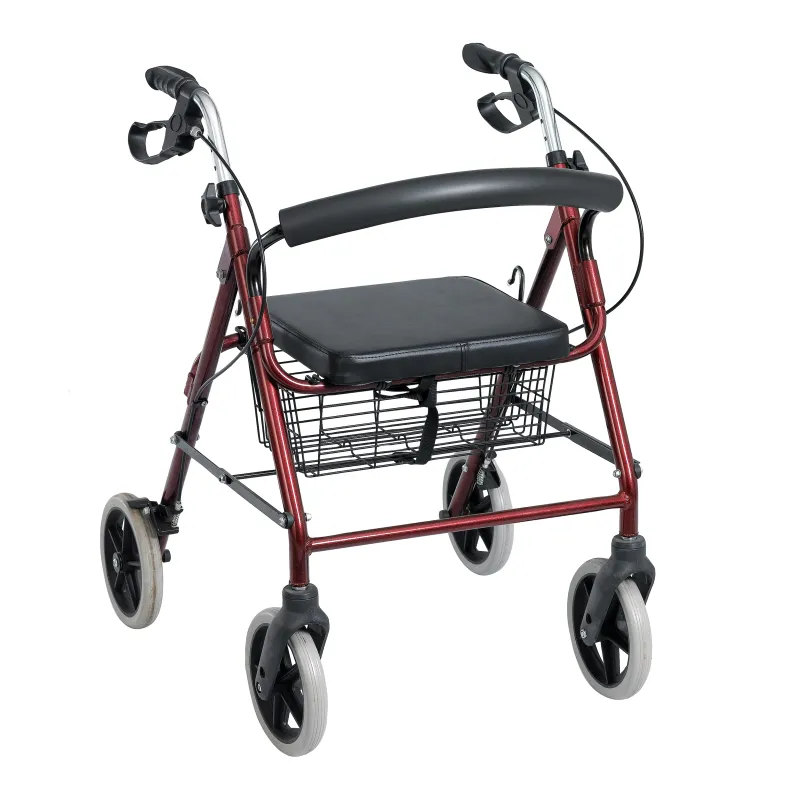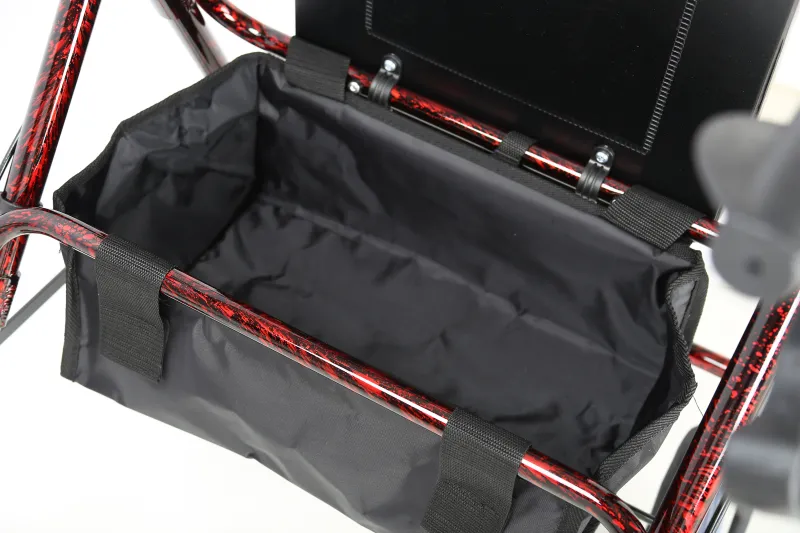
Can a rollator prevent falls? Which diseases are suitable for use?
2024-10-24 15:30
As a common walking aid, a rollator is widely used by the elderly and people with limited mobility to help them recover or maintain their mobility.
However, there is still much to be discussed about whether a rollator walker can really prevent falls and which patients with which diseases are most suitable for using a rollator. This article will analyze these issues in depth and provide detailed answers.

Basic functions of a rollator
A rollator is an assisted walking device equipped with wheels, handbrakes and seats. Compared with traditional walkers, the design of a rollator is more flexible, and users can enjoy more convenience during use. A rollator walker usually includes the following basic components:
● Four wheels: Provide smooth mobility and reduce the user's physical exertion.
● Handbrake: Convenient for controlling speed and preventing slips.
● Seat: Users can sit down and rest at any time when they are tired of walking.
● Basket or bag: Convenient for users to carry personal items.

Can a rollator prevent falls?
Mechanism to prevent falls:
One of the original intentions of the design of a rollator walker is to help users maintain balance and prevent falls. Here are a few key mechanisms of rollators in preventing falls:
● Stability: Four wheels provide more contact points than crutches or traditional walkers, increasing stability.
● Handbrake: The handbrake allows users to stop moving immediately when needed, preventing falls due to excessive speed.
● Seat: The seat provides the possibility to rest at any time, preventing falls caused by fatigue.
● Adjustable height: The height of the rollator walker can be adjusted according to the user's height, ensuring that the user maintains a correct posture when using it, reducing the risk of falls.
Limitations and risks:
Although rollators are designed to prevent falls, there are also some limitations and risks:
● Terrain limitations: Rollators may not be as stable on uneven terrain as on flat ground, and users need to pay attention to terrain changes when using them.
● Improper operation: If the user fails to use the handbrake correctly, or fails to adjust the height in time, the risk of falling may increase.
● Personal ability: Rollators are suitable for users with certain mobility and balance abilities. For users who are completely unable to walk or have extremely poor balance, rollators may not be enough to prevent falls.

Which diseases are suitable for using a rollator?
Rollators are suitable for mobility problems caused by a variety of diseases. Here are some common suitable diseases:
Arthritis:
Arthritis patients often face joint pain and stiffness, especially in the knee and hip joints. Rollators can reduce the burden on the joints, provide the necessary support and stability, and make it easier and safer for patients to walk.
Stroke sequelae:
Stroke patients may experience hemiplegia or imbalance. Rollators provide these patients with additional support, allowing them to better restore their mobility while reducing the risk of falling.
Muscular dystrophy:
Muscular dystrophy patients gradually lose muscle strength and become difficult to move. Rollators provide the necessary support to help these patients maintain their ability to walk and reduce the burden on their muscles.
Multiple sclerosis:
Multiple sclerosis is a disease that affects the central nervous system and may cause muscle weakness, imbalance and fatigue. Rollators can help these patients improve walking stability and provide the possibility of resting at any time.
Spinal cord injury:
Spinal cord injury patients may experience partial or complete paralysis and their mobility is severely affected. For some people with spinal cord injuries, a rollator walker can provide the necessary support and help them regain some mobility.








